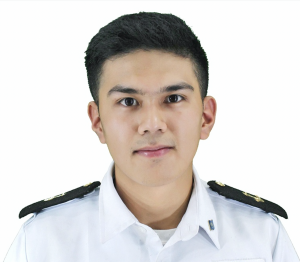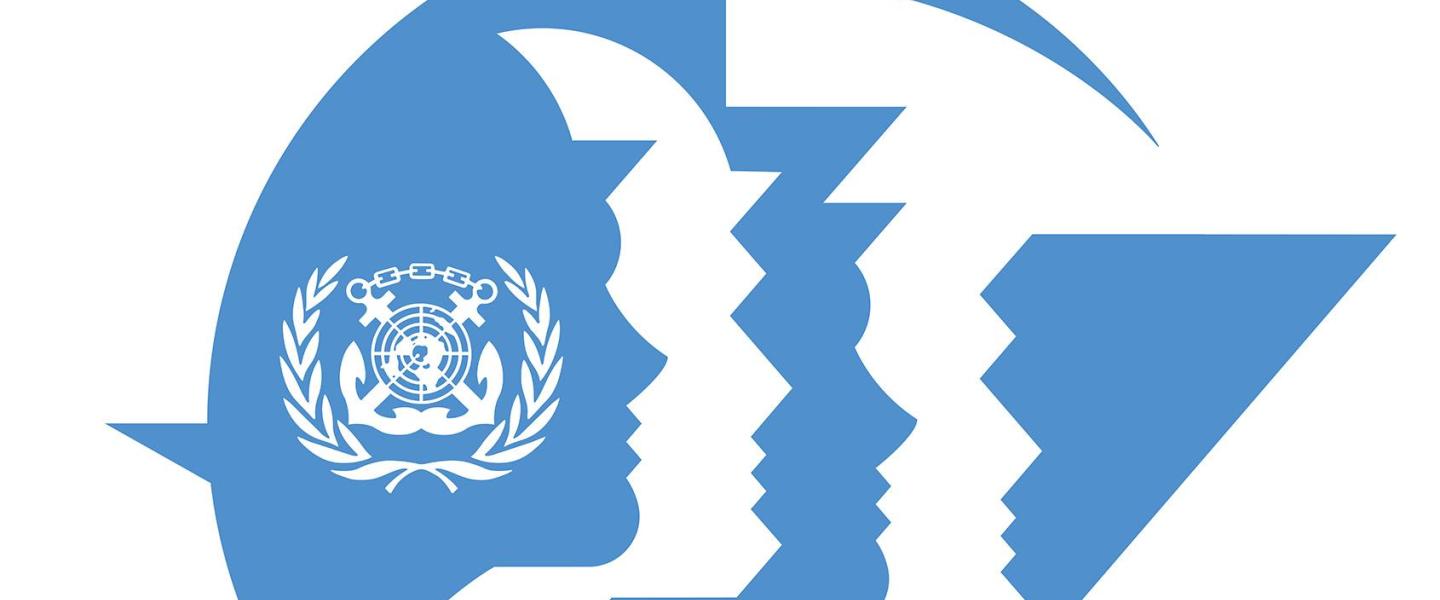Press Release
Friday 25 June 2021
London. UK. Today, marks the Day of the Seafarer, an annual IMO-led day that aims to recognise the vital role seafarers make to our everyday lives. During the COVID-19 pandemic, seafarers have undertaken what amount to be heroic efforts to continue providing the world with the goods it needs while they have been often ignored, have been failed to be repatriated in a timely manner and have had their contracts often extended in excess of legal norms. This year’s theme is a fair future for seafarers, but with a following question to be asked: “Can this can be achieved?
Human Rights at Sea has interviewed Yrhen Balinis, a young, driven and passionate Filipino seafarer currently serving at sea and who this year, became the youngest member of HRAS Non Executive Advisory Board.
In his interview Yrhen shares his thoughts on the profession, the challenges seafarers particularly young cadets face, the opportunities he sees and what the future should look like. We thank him for his time and his passion set against the background of increasing calls for seafarers to be recognised as key workers and better respected.
HRAS: What lesson can you identify; the one learnt the hard way, for seafarers and the maritime industry during the COVID-19 pandemic?
The world is largely dependent on the work of the seafarers. At the onslaught of this pandemic, the world lulled to a sleep, the roads became eerily silent but not the seas; it remained in perpetual motion to deliver everyone their needs. I don’t think people understand enough how difficult life at sea is. True, some may have the theoretical knowledge of the adversities: the insurmountable wave heights, the ravaging storms, the long working hours and tough living environment. But not until they have embarked on a journey as a seafarer will they realize what these brave heroes are made of— we are 10% salt, 10% iron, 1% vomit and are still 100% human being.
HRAS: In your experience as a young seafarer, what area of seafaring would you like to see and what change does the maritime sector need?
Augment the gap in training to adapt on maritime technological advancements; increased remunerations, and better living conditions, including access to shore leave and internet connections.
As we advance towards autonomous ships, may we not forget the human factor of seafaring. In advocating for human rights, let no human be left— not even those at sea.
As the Human Rights at Sea (HRAS) advocates “all persons at sea, without any distinction, enjoy human rights at sea,” other maritime players must also see the benefit of:
- Levelling the playing field among applicants seeking careers at sea;
- Providing adequate mentorship and learning opportunities towards continuous learning progress;
- Appropriating substantial compensation/allowance;
- Creating conducive working and living environment onboard;
- Inspiring fair, gender-equal treatment and encouraging ideas for a positive safety culture.

HRAS: What is your ambition or view on the issue of safety onboard and do you think the industry has done enough to encourage diversity?
SAFETY FIRST. This is attached almost everywhere on board. It is expected that this is imbued in the very fabric of one’s being. To cultivate a safe culture, it must also emanate from the management level officers leading by example. Nothing can be more demotivating than: “Ah, why should we do that, the officers are not even following it!” That’s how safety erodes, and then a series of other unsafe works brings forth accidents and near misses.
However, safety is not only limited to the physical aspect; being psychologically safe is another. Is there no harassment, bullying, or desperate attempt to isolate you from the group? Do you feel belonged with your colleagues? Does your gender, age, political and religious beliefs affect the way you are treated? To be truly safe, seafarers must be guarded both from external injuries (near misses and accidents) and internal harms (mental manipulations and psychological abuses).
This is where diversity initiatives come into play. The industry has made significant development in championing diversity and inclusivity in the seafaring profession. There are now women and LGBTQIA+ management level officers onboard and ashore—with many others following suit! To say that the industry has not done enough towards diversity and inclusion is to discredit the efforts of various people and organizations that made progress towards its attainment. We just need to keep the momentum going!
HRAS: What are some of the challenges in entering seafaring as a young cadet and as a qualified seafarer?
The level of happiness of cadets is in a downward spiral based on the 2020 Quarter 4 Seafarer Happiness Index. “There was a worrying trend in responses from deck cadets. Comments reflected an increase in pressure and less attention on training and mentorship onboard.”[1]
Coming from a country where there seemed to be no lack of maritime graduates annually, finding a sponsoring company to spend our onboard training (OBT) is the primary challenge. This is further worsened by the relentless battle against backer systems. Character referencing is one; backer system is its evil twin. Compare the applicants based on the merits of their credentials not on the influence of their backer. To win this fight, we need to standardize the selection and employment process. Level the playing field. A centralised online job portal for Filipino seafarers will be a way to go to eliminate this unfair advantage.
Another impediment is the training standards on board domestic ships where most Filipino cadets spend their OBT. Many domestic vessels have been notorious in providing subpar mentoring opportunities for these young sailors; I would go so far as to say that they entreat these cadets as cheap labors! As supported by the European Maritime Safety Agency (EMSA) report: “The team found cases in which 11, 16 or even 37 deck cadets were onboard those [inter-island] ships, on which there were only two deck officers and the master.” Just imagine the living and working conditions onboard those ships!
Since the Philippines supplies most of the skilled seafarers in the international maritime workforce, shouldn’t it be that its seafarers serving domestic ships be excellent as well?
HRAS: What is your vision for a fair future for seafarers?
For a fair future for seafarers I’d say: 3, 4, 5, 8, 10, 13, 14, and 17.
No, these are not the winning lotto numbers. These are the United Nation Sustainable Development Goals that I believe would be integral for a fair future for seafarers.
To deal with the rising concern of suicide and crew mental health concerns, elevate the SDG 3 (Good Health and Wellbeing).
To adapt to the rising trends of maritime digitization, we need to be abreast in SDG 4 (Quality Education).
To search for untapped potentials and increase diversity and inclusion, we have to rally for SDG 5 (Gender Equality) and inspire SDG 10 (Reduced Inequalities).
To attract new maritime professionals and seafarers to this occupation and retain them for the long haul, we have to cultivate SDG 8 (Decent Work and Economic Growth).
To ensure that ships would continue to have oceans to sail on, we have to act on SDG 13 (Climate Action) and protect those in SDG 14 (Life below water).
Finally; alone, I am just but a drop, but together we can be an ocean creating ripples of change with SDG 17 (PartnerSHIPS for the Goals). Emphasis on SHIPS added.
HRAS: What are the most important factors needed to assure future crew welfare after COVID?
willFAIR => crew welfare
A strong will to advocate for the humans at sea; to continue what has been started. Or will this fiery clamor for our sailors fan out when this pandemic is over?
Fast contracts. Ideally, six months would be the optimum mix of saving sufficient financial resources and preserving your sanity. Aware that this pandemic presents an extra-challenge for that to materialize, a question keeps me awake at night: what if other shipping companies are just making this pandemic an excuse not to conduct crew change— operational expense, administrative costs etc.?
In a post-COVID recovery, there is no going back to business as usual. Seafarers are indeed the core of shipping’s future. Their welfare must take front and center, else shipping companies would risk having crewless ships even before MASS comes into full swing!
Access to shore leave. They say that with hectic cargo operations and fast port stays, shore leave is a perk that the seafaring has long lost. It’s time we revive this benefit to ensure that there is sufficient unwind time away from the tedious shipboard tasks.
Internet connectivity. The internet offers a gateway for seafarers to connect from the rest of the world. Especially this pandemic, the need to communicate with family and loved ones has become ever more essential.
Remunerations. I was once asked: the work onboard are more or less the same whatever the vessel is, why is there different collective bargaining agreements which yield to favoring one vessel to another on the basis of salary? I was speechless. He made good point.
HRAS: If you were the Secretary-General of IMO, what will be your first agenda?
As the Secretary-General of the International Maritime Organization:
Acknowledging that there is sufficient evidence that the industry is facing a shortage of seafarer supply as forecasted by BIMCO/ICS and Drewry Reports,
Expressing concern about the effects of the pandemic and the rapid development of maritime autonomous surface ships (MASS) on the viability of the seafaring profession,
Noting with appreciation the works of all seafarers, fisherfolks, and maritime professionals onboard and ashore amidst these unprecedented times,
Conscious that the youth remains an untapped resource of seafarer workforce and maritime expertise,
Now be it resolved that my first agenda would be the creation of an allied arm, the IMO Youth Ambassador, who will support the works of the Organization on matters pertaining to youth and the new generation; serving as the intermediary between the Organization and their youth-subjects echoing their concerns and suggesting alternative actions for the attention of the Organization,
Resolved further that second to my agenda is dedicating 2022 as the year that these young sailors and maritime professionals are recognized as the drivers of the new era of shipping, I will encourage that the World Maritime Theme next year be “Young sailors steering the helm for the next gen.” #IMO2022IBelongtotheSeatoo,
Recognizing that there is a need for upskilling and coping up with rapid modernizations, I will look into the need on amending The International Convention on Standards of Training, Certification and Watchkeeping for Seafarers, 1978, as amended (STCW Convention) and Code to include higher IT level skillsets in preparation for the MASS being in full operations in the near future,
Finally, urging Member states and relevant stakeholders to review their current baccalaureate curriculum and/or training courses to take account of this foreseeable transformation in the maritime industry and advise the Organization for such suggestions.
The Mission to Seafarers. (2020). Seafarers Happiness Index, Quarter 4.
ENDS.
